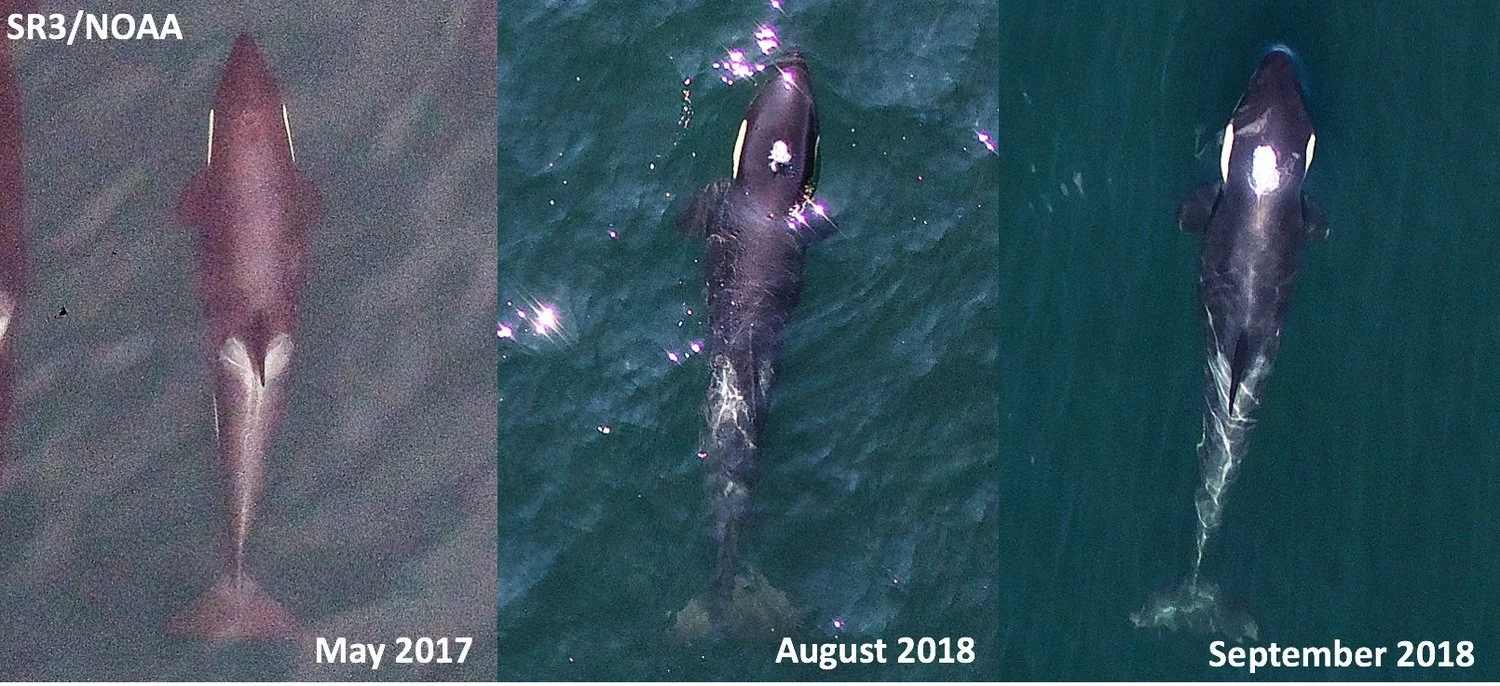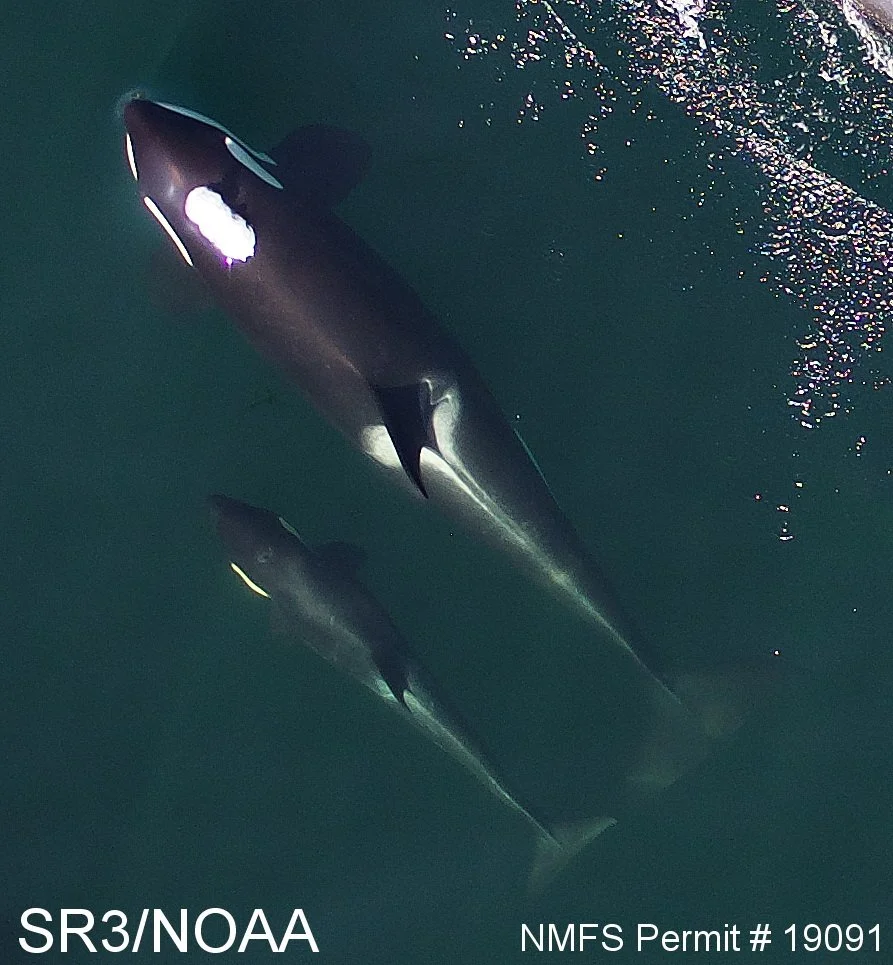Monitoring the Condition of an Ailing Southern Resident Killer Whale, J50
There is a high level of concern about the health of a young Southern Resident killer whale, J50, who has been documented to be in very poor body condition in recent months. Since early August NOAA Fisheries and response partners have implemented a medication strategy to try to administer antibiotics and dewormer. To assess the effectiveness of medication, and to monitor her general condition, SR3 has continued its collaboration with cetacean health experts at NOAA Southwest Fisheries Science Center to collect aerial images for ongoing photogrammetry research.
Working under a research permit from NOAA Fisheries, we have been able to fly a custom-made research drone high (typically >100ft) above the whales, to non-invasively collect images to measure the width (to infer fatness) and length (to monitor growth) of the whales. In particular, we have been able to document a dramatic decline in condition of J50 between 2017 and 2018, and a worrying continuation of this decline in the last month (see photographs below). Of further concern, our quantitative measurements from these images indicate that her mother (J16) has also declined in condition over the last month, perhaps due to the burden of helping to catch and share food with J50.
Our collaborative research team will be working around the San Juan Islands for the remainder of September, with a primary aim of documenting the condition of all individuals in the population to add to a 10-year time series to assess changes in the nutritional health of Southern Resident killer whales. These data will support management actions aimed at maintaining an adequate food supply.
Aerial images of Southern Resident killer whale juvenile J50, taken on May 31st 2017 (left), August 1st 2018 (center) and September 3rd 2018 (right) for comparison. In the 2018 photos, she is in poor body condition revealing a very thin profile, and loss of fat behind the head creating a “peanut head” appearance that has become more prominent over the last month. Images by Holly Fearnbach (SR3) and John Durban (NOAA) obtained with an unmanned drone, piloted non-invasively >100ft above the whales under NMFS research permit #19091.
Aerial image of Southern Resident killer whale juvenile J50, swimming alongside her mother (J16) on September 3rd 2018 (right) for comparison. This highlights the small size and thin body profile of J50. Images by Holly Fearnbach (SR3) and John Durban (NOAA) obtained with an unmanned drone, piloted non-invasively >100ft above the whales under NMFS research permit #19091.


